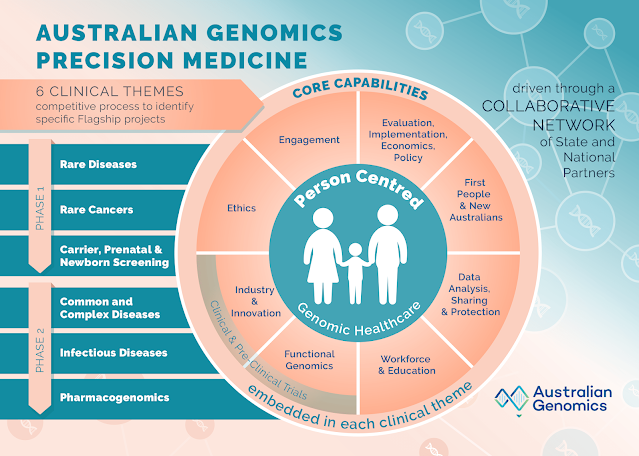INTRODUCTION: THE FUTURE OF GENOMIC NEWBORN SCREENING
Genomic sequencing in newborn screening (gNBS) represents a major leap in early diagnosis and personalized medicine. This innovation offers the potential to identify a wider spectrum of genetic conditions beyond what traditional screening methods detect. In a large-scale study involving 2,509 Australian adults, researchers assessed public attitudes toward the value and implementation of gNBS. Findings revealed strong support, with 90% expressing interest in receiving results. This introduction highlights the scope of genomic newborn screening research, focusing on public values, cost considerations, consent models, and potential healthcare outcomes. These insights provide a foundation for evaluating the social and economic implications of integrating gNBS into public health frameworks.
PUBLIC PERCEPTION AND ACCEPTABILITY OF GENOMIC NEWBORN SCREENING
Understanding public sentiment is essential when introducing transformative technologies like gNBS. The research highlighted widespread enthusiasm for receiving genomic results, with the majority of participants prioritizing informed access to newborn health data. However, perceptions were nuanced—while people embraced the benefits of early diagnosis, concerns emerged over the inclusion of untreatable or low-penetrance conditions. These findings suggest that education and transparent communication are vital to maintain public trust and ensure successful program adoption. Tailoring implementation strategies to align with public values can significantly improve long-term acceptance.
ECONOMIC VALUE AND COST CONSIDERATIONS IN gNBS
Cost emerged as the dominant factor influencing participants' decisions about gNBS uptake. The study quantified public willingness to pay between AU$4,600 and $5,700 per newborn screened for programs that diagnose 10–50 additional cases per 1,000 newborns. These figures are critical for policymakers conducting cost-benefit analyses and designing economically sustainable gNBS programs. Balancing affordability with the promise of increased diagnostic yield can help guide the resource allocation needed for nationwide implementation.
OPTIMAL CONSENT MODELS FOR GENOMIC SCREENING PROGRAMS
Ethical implementation of gNBS requires robust, user-preferred consent models. The study revealed a strong preference (65%) for opt-in consent, reinforcing the importance of autonomy and informed decision-making in genomic healthcare. Participants favored receiving high-probability results in person from genetics professionals, although remote delivery through phone or telehealth was also acceptable. This data underscores the need for flexible yet ethically grounded consent practices that cater to diverse population preferences while ensuring clarity and patient comfort.
IMPACT OF DIAGNOSTIC YIELD ON PUBLIC SUPPORT FOR gNBS
A key driver of support for gNBS was its ability to increase diagnostic rates among newborns. Respondents showed a clear preference for models that identify more conditions early, demonstrating the value placed on clinical utility. However, enthusiasm waned for including conditions with limited treatment options or low penetrance, suggesting a trade-off between diagnostic comprehensiveness and emotional or practical burden. Future research should explore how to balance these factors to optimize diagnostic impact while respecting patient values.
INFORMING GLOBAL HEALTH POLICY THROUGH AUSTRALIAN gNBS INSIGHTS
Australia’s experience with gNBS research provides a valuable template for other healthcare systems considering similar programs. The combination of public preference data, economic valuation, and ethical considerations offers an evidence-based framework to inform global genomic screening policy. Countries aiming to integrate gNBS can use these insights to design context-sensitive programs that align with public interest and system capacities. Further cross-national studies can help adapt these findings for diverse cultural and healthcare environments.
Visit: https://infectious-diseases-conferences.pencis.com
Nominate Now: https://infectious-diseases-conferences.pencis.com/award-nomination/?ecategory=Awards&rcategory=Awardee
Registration page: https://infectious-diseases-conferences.pencis.com/award-registration/
Contact us: infectioussupport@pencis.com
Hashtags
#GenomicScreening, #NewbornGenomics, #PublicHealthResearch, #GenomicMedicine, #PrecisionHealth, #GeneticDiagnosis, #HealthcareInnovation, #gNBS, #Bioethics, #PublicPreferences, #ConsentModels, #HealthEconomics, #ScreeningPolicy, #PopulationHealth, #GenomicsInPractice, #HealthTechnologyAssessment, #GeneticScreeningEthics, #ImplementationScience, #ClinicalGenomics, #PatientCenteredCare,




No comments:
Post a Comment